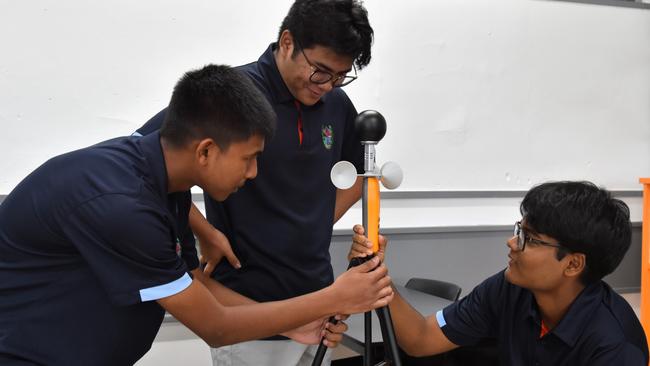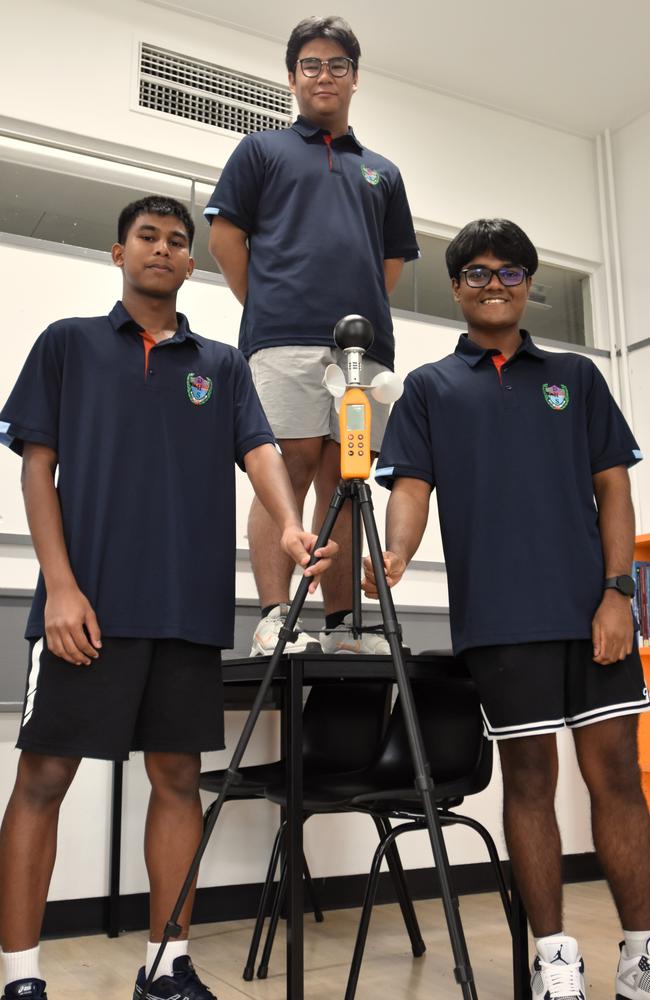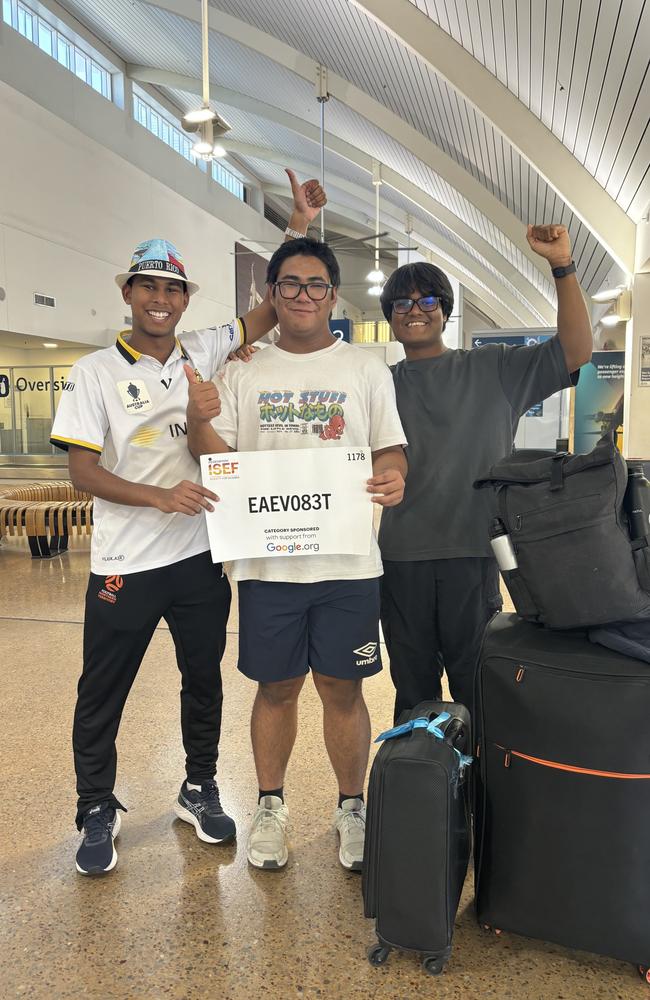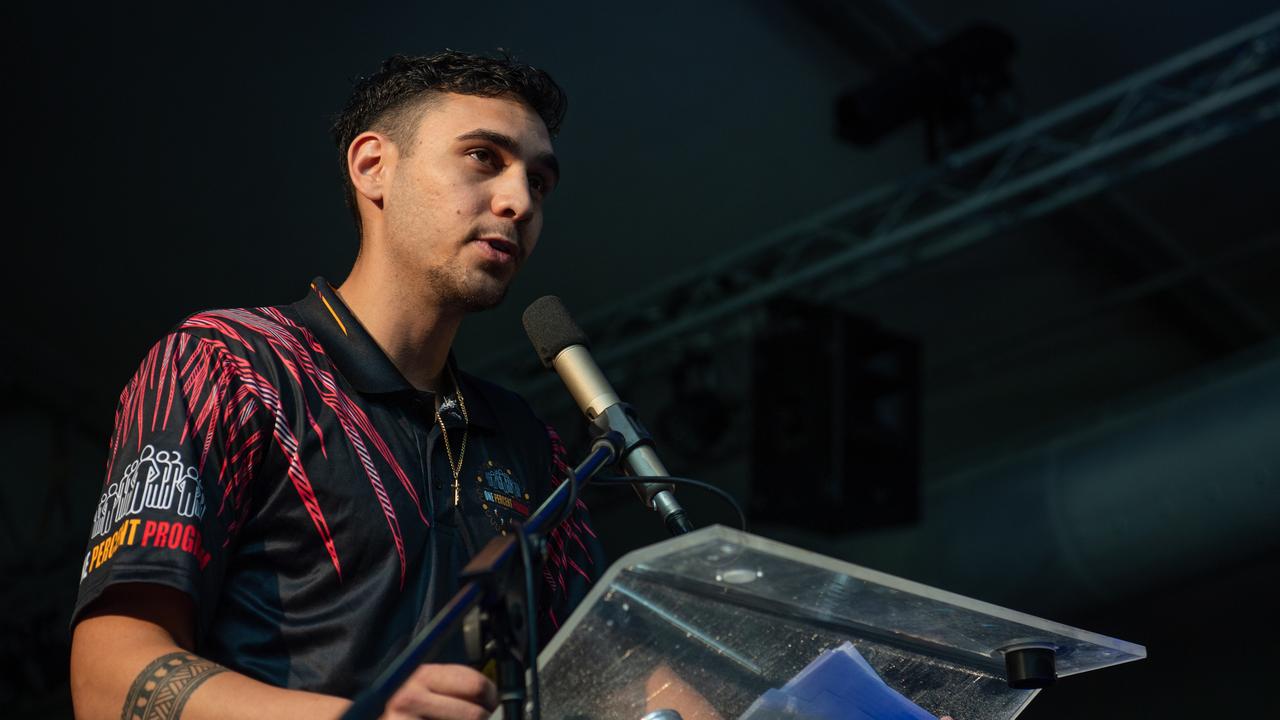Darwin High School students win silver at China Adolescents Science and Technology Innovation Contest
Students from Darwin have won another international award for their specialised cooling strategy that could cut down Territorians’ power bills.

Education
Don't miss out on the headlines from Education. Followed categories will be added to My News.
A Darwin trio’s solution for cheaper power bills in the Territory has won them another international medal.
Darwin High School students Mohammad Niyaz Hasan, Monishi Rangchak Tripura, and Pothik Vincent Mondol devised a cooling strategy that could save their school enough money to hire two new teachers – and it’s applicable to NT households as well.
Mr Hasan recently represented the team at the China Adolescents Science and Technology Innovation Contest, where the project received a silver medal in its category.
“It was quite challenging because we divided our work into specialist categories, so we have someone that knows their stuff very well in that field,” he said.
“I was more (focused on) the physics and the scientific reasoning behind everything, so I just had to look at the data.
“In the presentation, I think I was confident, that I did very well in representing a group of three.”

Previously, the project placed third in its category at the International Science and Engineering Fair in Los Angeles.
Mr Tripura and Mr Mondol represented the trio after Mr Hasan was unable to secure a visa on time.
The group previously told the NT News they were “devastated” by the team being split up but did the best they could with the situation.

Access to both competitions was made possible thanks to the Australian Science and Engineering Fair team.
AUSSEF NT representative Jessica Neilsen said when the organisation was invited to bring three projects – with limited student numbers – to CASTIC, bringing Mr Hasan to represent his team was a priority.
“During our discussions before going into the competition with Vincent and Rangchak, it was about, ‘you’re going to be judged as a group, you have to be able to explain out what Niyaz was doing’,” she said.
“We had exactly the same conversation with Niyaz before his conversations – the judges are going to ask how did it happen, what did everybody do”
“Arming him to make sure that he understood how to feedback everybody (was important).”
Ms Neilsen said AUSSEF was working hard to make international science fairs accessible to students across the nation.
She said competitions such as ISEF and CASTIC had typically only been attended by private school students in New South Wales.
“Niyaz, Vincent and Rangchak have proven that the Territory provides an international standard and opportunity in STEM,” she said.
“As a representative of the AUSSEF committee, I am committed to supporting all rural and regional students and their teachers in accessing the supports needed for them to reach their potential.”




